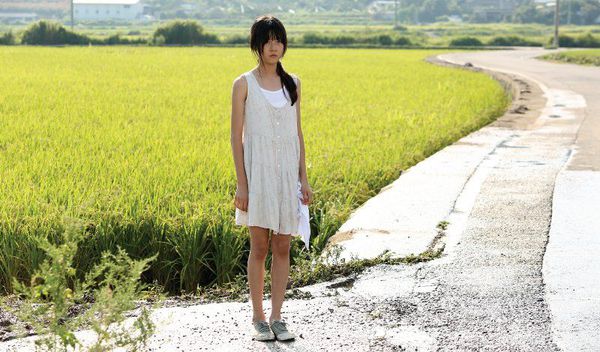Eye For Film >> Movies >> A Girl At My Door (2014) Film Review
A Girl At My Door
Reviewed by: Jennie Kermode

A troubled child. A small town full of secrets. A young cop clashing with the system. It's a familiar set-up, but A Girl At My Door still manages to deliver something different. In a film full of close-ups, Bae Doona (best known to Western viewers for Cloud Atlas and Sympathy For Mr Vengeance) delivers a sensitive, nuanced performance which challenges audience preconceptions and takes the film into dangerous territory.
Bae is Young-Nam, generally referred to as the Chief by a local police force whose staff are polite and deferential but still uncomfortable with the notion of doing things by the book, so dependent is the economy of their town on one man. This is Yong-Ha (Song Sae-Byeok), whose use of immigrant workers raises concerns but whose biggest problem is drinking and taking things out on his 13-year-old daughter, Do-Hee (Kim Sae-ron). This is the girl of the title, so conditioned to abuse that she is long past seeking help, but the Chief's interventions lead her to obsess about her protector and inveigle her way further and further into her life. Anxious to protect her, the Chief gradually gives up more and more of her personal space and places herself in a difficult situation, especially when it becomes apparent that the girl is sexually infatuated with her.

Although it has undergone a significant cultural shift in recent years, South Korean society still retains a lot of old prejudices. Controversial issues such as homosexuality are generally dealt with by polite avoidance of the subject, but this means they are easily presented as scandalous. To an extent, child abuse also remains a taboo subject, but there are issues here just as relevant in the West, for instance the focus on sexual abuse as the ultimate horror when a blind eye is often turned to other forms of violence (despite the fact they can also have serious long-term consequences). Similar double standards apply to alcoholism: Yong-Ha is an easily demonised figure with his drunken binges but the Chief, polite and middle class, has a habit that is largely overlooked, hiding spirits in mineral water bottles and drinking to deal with stress, drinking to forget, drinking to sleep.
Dealing with jealousy, desire and restraint, and the tensions between different kinds of love and identification, this film includes a lot of material that will make viewers uncomfortable, but never gratuitously. At a technical level, it has the polish we have come to expect from South Korean cinema, but its real strength is in the performances July Jung coaxes from her cast. It's also notable for its refusal to settle into familiar victim narratives, showing instead the way prolonged abuse or discrimination can change people's behaviour, and keeping viewers alert to each character's capacity to do harm. For a first feature from a 34-year-old director, it's a remarkable piece of work.
Reviewed on: 09 Feb 2015















